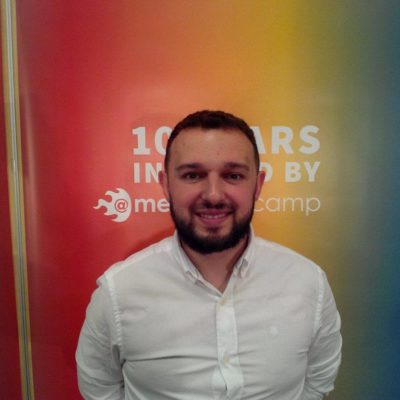By Anna Romandash
Post-Soviet space, recently shaken by Russian-Ukrainian war, has been marked by many major conflicts in the previous decades. Besides Russian-Georgian war and the formation of Transnistrian republic in-between Ukraine and Moldova with Russian support, the region also lives with the continuing hostility between Azerbaijan and Armenia as well as inner tensions in Central Asian countries and Belarus.
In order to solve the existing issues as well as improve the relations within the region, local think tanks started to gather a network of experts Regional Studies Center is one of such organizations, based in Armenia. The initiative, founded by an American-born Armenian Richard Giragosian aims to tackle local problems from within. It invites different speakers from abroad to solve local and post-Soviet problems together.
Faina Nakanechnaya is one of the experts volunteering in the organization. Born in Belarus, she became interested in Caucasian region and moved to Armenia and then Georgia from her native country. At the think tank, she provides expertise on the situation in Belarus while also doing her Master’s degree in human rights and democratization. Orange has spoken with Faina on the scope of her work and the way youth activism can be a tool in solving regional issues.
How does your think tank work?
The format is that you can volunteer and write about things you have an expertise on. Since I had an expertise on Belarus, I used my experience whenever my organization needed news on the country. We are interested in changes in post-Soviet space and the way people react to them, so we invite a wide variety of experts from the region to find the answers to those questions.
What are the most pressing issues you are working on?
Currently, we work on security issues and the way international experience can be applied in Caucasus to make the situation here safer. Recently, we had a delegation from Israel, who discussed their practices and potential application in the region. At the moment, the organization also works on Armenia-Turkey relations in order to stabilize the current situation between the two countries. Both states have no diplomatic relations, so our organization is looking for a way to minimize the mutual animosity.
What is the applicability of your work?
The information the experts develop is later passed on to diplomats and ambassadors, who can use it in their reports and make some conclusions on how to handle particular issues. Secondly, we target civil society and NGOs, who can connect with any speakers from our think tank and find out ways to help in particular areas. Thirdly, we work with journalists because we verify all the information, so media can use the data we provide.
How did you get involved?
I became interested in Caucasus region five years ago when I attended a lecture by Caucasian House on conflicts in post-Soviet space and the way they were handled. It was then that some experts spoke of potential aggression by Russia toward Ukraine. I got really interested in the area, and after working for some time as a journalist, I realized I wanted more theoretical knowledge on such topics as international law and human rights to carry on with the projects that interested me. I found a study program that combined my media skills and my passion for solving international conflicts and international law.




